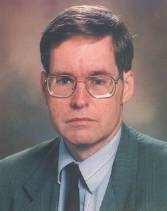October 1998
Voodoo Economics Revisited
By Michael J. Katin, MD
I don't know anything about economics, as is obvious from my financial history, but with the ASTRO meeting coming up, this seems like an appropriate time to propose a program that I have been formulating for some time.
Part of the current budget debate involves deciding the disposition of the surplus from last year. The President wants to spend it on expanding social programs, financing the International Monetary Fund, and subsidizing a new national dictionary (with new definitions for "sexual relations" and "is"). Congress wants to use it to finance tax cuts. Some whacko even proposed using it to start paying down the national debt (no, I'm not making that up).
We in the field of Radiation Oncology are always on the defensive in terms of trying to preserve our reimbursement. Those who have not been in altered states over the past few months know that our income will be cut drastically by the implementation of the new HCFA allowances based on practice expense. Obviously, we are the specialty with the least expense and deserve a substantial cut. In reality, we are the specialty with the least lobbying expense. In any event, it is time to try to work with the system and recognize that there are other sources of income that might be explored.
To that end, I hope that ASTRO would be willing to promote the creation of the National Rad Bank. I use this name only because the National Gray Bank doesn't sound right. Undoubtedly, the framework for its organization already exists in the National Soil Bank and the National Helium Bank. There are probably many other Banks of which none of us are aware but probably consume the equivalent of every cent in taxes paid by the entire population of South Carolina.
The National Rad Bank would allow three things. First, excess rads could be purchased and stockpiled in a Federal facility, probably to be located in Georgia or Mississippi (under the Democratic Congress, Senator Robert Byrd would have found a great location in West Virginia). For example, if a patient doesn't come in for treatment on a given day, the rads not administered could be sold to this stockpile. Second, in case of a maldistribution of cancer cases, rads could be shipped to any regions in which the use of radiation therapy suddenly increases. This could include scenarios in which capitation results in serious cuts in surgical intervention (sorry about the pun). Third, in addition to sending economic aid and food to countries in whose affairs we are meddling, radiation therapy could be used as another incentive for them to be friendly to us. Russia's supply of radiation is not available to most of the population, since most is leaking out of power plants, being smuggled away in warheads en route to Afghanistan or Iraq, or in rusting reactors in sunken submarines in the Barents Sea.
Trading in this National Rad Bank could provide the difference in income that might allow borderline radiation oncology practices to remain solvent. I hope the leadership of our organizations will take the initiative on this critical issue.
email: mkatin@radiotherapy.com
